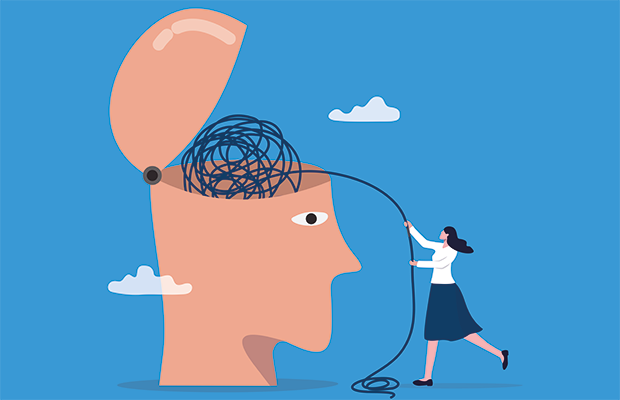Psychology AQA A
Just wondering how you guys are revising?? So overwhelmed with all the PSYA3 stuff to learn.
Oh by the way I should probably say what topics I'm studying -_-
Unit 3 - Aggression, relationships and eating behaviour (doing Anorexia)
Unit 4 - Schizophrenia, addiction, obviously research methods
Many thanks!!!
Oh by the way I should probably say what topics I'm studying -_-
Unit 3 - Aggression, relationships and eating behaviour (doing Anorexia)
Unit 4 - Schizophrenia, addiction, obviously research methods
Many thanks!!!

Sorry you've not had any responses about this.  Are you sure you’ve posted in the right place? Posting in the specific Study Help forum should help get more responses.
Are you sure you’ve posted in the right place? Posting in the specific Study Help forum should help get more responses.  Hopefully someone will be able to get back to you
Hopefully someone will be able to get back to you 
 Are you sure you’ve posted in the right place? Posting in the specific Study Help forum should help get more responses.
Are you sure you’ve posted in the right place? Posting in the specific Study Help forum should help get more responses.  Hopefully someone will be able to get back to you
Hopefully someone will be able to get back to you 
Original post by izzipark96
Just wondering how you guys are revising?? So overwhelmed with all the PSYA3 stuff to learn.
Oh by the way I should probably say what topics I'm studying -_-
Unit 3 - Aggression, relationships and eating behaviour (doing Anorexia)
Unit 4 - Schizophrenia, addiction, obviously research methods
Many thanks!!!
Oh by the way I should probably say what topics I'm studying -_-
Unit 3 - Aggression, relationships and eating behaviour (doing Anorexia)
Unit 4 - Schizophrenia, addiction, obviously research methods
Many thanks!!!

Every person is different when revising but what gets me through any psychology unit is past papers. Past papers help you focus on what to learn and develop your exam skills, also looking at mark schemes once you have written the answer. Also if you do make notes I always think colourful, eye catching work helps.
Hope this helped

Hi, I'm studying psychology A at the moment, and find making notes from already marked essays ive written helps, then making essay plans from it and keep rewriting it, then reducing the amount of resources you use each time, e.g. Start with textbooks, your notes etc, then just your essay plan, then nothing
Hope that helps
P.s I've just been told by my teacher that the A03 should be more imbedded into the essay rather than in a paragraph at the end, do you know if this is true?
Hope that helps
P.s I've just been told by my teacher that the A03 should be more imbedded into the essay rather than in a paragraph at the end, do you know if this is true?
Original post by duckcrazy123
Hi, I'm studying psychology A at the moment, and find making notes from already marked essays ive written helps, then making essay plans from it and keep rewriting it, then reducing the amount of resources you use each time, e.g. Start with textbooks, your notes etc, then just your essay plan, then nothing
Hope that helps
P.s I've just been told by my teacher that the A03 should be more imbedded into the essay rather than in a paragraph at the end, do you know if this is true?
Hope that helps
P.s I've just been told by my teacher that the A03 should be more imbedded into the essay rather than in a paragraph at the end, do you know if this is true?
Thanks!
And that's what I've been told but what I do is make my AO3 a serparate paragraph and make it applicable to the question.
For example, if I'm talking about Eating behaviour and neural mechanisms, my point would be this:
However, hunger and eating may not purely be under neural control. For example, Lutter et al. found the body produces extra quantities of ghrelin when stress is experienced. This reduces depressive and anxious behaviours but also boosts appetite, leading to increased comfort eating. Therefore, this suggests that the control of hunger and eating is more complex that the interaction between the lateral hypothalamus and ventromedial hypothalamus.
Furthermore, this explanation is also reductionist. However, taking a reductionist approach may make a behaviour easier to investigate but it is at the risk of fully understanding a complex bodily process, which may mean potentially successful treatments for weight problems may not be developed.
Hope this helps but if it doesn't then you can message me

Original post by KateClarke
Every person is different when revising but what gets me through any psychology unit is past papers. Past papers help you focus on what to learn and develop your exam skills, also looking at mark schemes once you have written the answer. Also if you do make notes I always think colourful, eye catching work helps.
Hope this helped
Hope this helped

Ahhh yeah. Thanks a lot! Doing the June 2014 papers now before mocks on the first week back!

Original post by izzipark96
Thanks!
And that's what I've been told but what I do is make my AO3 a serparate paragraph and make it applicable to the question.
For example, if I'm talking about Eating behaviour and neural mechanisms, my point would be this:
However, hunger and eating may not purely be under neural control. For example, Lutter et al. found the body produces extra quantities of ghrelin when stress is experienced. This reduces depressive and anxious behaviours but also boosts appetite, leading to increased comfort eating. Therefore, this suggests that the control of hunger and eating is more complex that the interaction between the lateral hypothalamus and ventromedial hypothalamus.
Furthermore, this explanation is also reductionist. However, taking a reductionist approach may make a behaviour easier to investigate but it is at the risk of fully understanding a complex bodily process, which may mean potentially successful treatments for weight problems may not be developed.
Hope this helps but if it doesn't then you can message me
And that's what I've been told but what I do is make my AO3 a serparate paragraph and make it applicable to the question.
For example, if I'm talking about Eating behaviour and neural mechanisms, my point would be this:
However, hunger and eating may not purely be under neural control. For example, Lutter et al. found the body produces extra quantities of ghrelin when stress is experienced. This reduces depressive and anxious behaviours but also boosts appetite, leading to increased comfort eating. Therefore, this suggests that the control of hunger and eating is more complex that the interaction between the lateral hypothalamus and ventromedial hypothalamus.
Furthermore, this explanation is also reductionist. However, taking a reductionist approach may make a behaviour easier to investigate but it is at the risk of fully understanding a complex bodily process, which may mean potentially successful treatments for weight problems may not be developed.
Hope this helps but if it doesn't then you can message me

Yes that really does thank you, I've been writing the whole essay and then putting the A03 in a separate paragraph at the end, so now I see that putting after research and not all together at the end would be better, thank you

Posted from TSR Mobile
Original post by izzipark96
Ahhh yeah. Thanks a lot! Doing the June 2014 papers now before mocks on the first week back! 

Good luck!

Posted from TSR Mobile
How much revision has people done already?
Posted from TSR Mobile
Posted from TSR Mobile
Quick Reply
Related discussions
- A-level Exam Discussions 2024
- psychology flashcards?
- Simplified AQA Chemistry Specification
- Only answer if you’ve done these a level and exambaord
- a level study : BLOG
- About my a level choice answer and that’ll be very helpful
- questions for private candidates for A-levels and GCSEs
- AQA past papers - Psych, Soc, Eng. Lang
- How do you learn content faster for Psychology?
- How much Maths in Biology and Psychology A Level?
- 2024 GYG #letsbecomeacademicweapons
- Easiest Optional Topics in AQA A-Level Psychology
- A-level Psychology Study Group 2023-2024
- Only answer if you’ve done an a level that matches this?
- how to revise for psychology a level?
- AQA Psychology a level
- Should I do Psychology or Biology A level?
- AQA A Level Psychology Essays
- Which a level is fairly easy to understand the technique of the exam
- Rate my study plan (A-lvl stem student + psych)
Latest
Last reply 1 minute ago
Official Cambridge Postgraduate Applicants 2024 ThreadLast reply 1 minute ago
Amazon Project management apprenticeship 2024Last reply 1 minute ago
Haven't heard back from LSELast reply 3 minutes ago
Official University of Bath Offer Holders Thread for 2024 entryLast reply 3 minutes ago
Chances of switching from LSE Acc and Fin to Econ and Maths or Fin Maths and StatsLast reply 4 minutes ago
JK Rowling in ‘arrest me’ challenge over hate crime lawLast reply 6 minutes ago
Official University College London Applicant Thread for 2024Last reply 7 minutes ago
I accepted my firm+ paid a deposit on accommodation but I’m thinking about a Gap yearLast reply 11 minutes ago
LSE anthropology and law 2024Last reply 12 minutes ago
Official: University of Nottingham A108 2024 Entry Applicant threadLast reply 14 minutes ago
Will an IVA cause my Civil Service pre employment check to fail?Last reply 16 minutes ago
Official: University of Bristol A100 2024 Entry ApplicantsLast reply 19 minutes ago
Apprenticeships in medicineLast reply 21 minutes ago
Korean Studies at University of Sheffield Year Abroad



